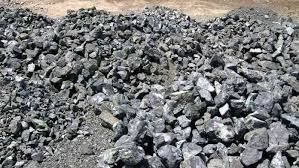THE Zimbabwe Mining and Alloy Smelting Company (Zimasco) has ditched about 150 small-scale chrome miners in favour of Chinese investors, an investigation has established.
The affected miners are crying foul over their exclusion, which runs foul of the Zimbabwe Investment and Development Agency (Zida) Act and the Constitution.
Section 13 of the Zida Act [Chapter 14:37] prohibits discrimination between local and foreign investors.
“The Agency [Zida] shall accord to foreign investors and their investments, treatment no less favourable than that it accords, in like circumstances, to domestic investors with respect to the establishment, acquisition, expansion, management, conduct, operation and sale or other disposition of their investments.”
This clause, therefore, puts the burden on Zida to monitor the conduct of investments involving foreign-owned firms in their dealings with local counterparts so as to ensure equality and fairness in the manner in which both are treated or operate.
- Triangle retrenches as economy bites
- Caledonia in US$42 million capex drive for 2025
- Mukuru launches mobile wallet in Zim to bolster financial inclusion
- Economy heads for a bloodbath: Biti
- NBS completes Glaudina housing project ahead of schedule
Section 56 of the Constitution prohibits unfair discrimination and obligates the State to take legislative and other measures to correct unequal treatment of citizens and permanent residents.
In November 2023, Zimasco shut down small-scale mining operations in Mutorashanga, Mhondoro, Lalapanzi, Shurugwi, Mashava, Mberengwa and Neta, snuffing the life out of the contracted local chrome miners.
The Midlands-based smelting company has since 2008 been sub-contracting the small-scale miners to mine chrome at its numerous claims and deliver supplies to it.
However, several Chinese miners have been allowed to take over business in the areas that the local investors used to operate.
The Chinese miners, it was established, are selling the chrome to buyers of their own choice, including outside Zimbabwe.
The local miners, known as tributors, are questioning why they were forced to cease operations while foreign miners appear to be given preferential treatment as they continue with their mining activities on the chrome claims.
Zimasco argued that because of incessant power cuts and depressed international prices — among other factors — it could not continue with chrome production when it disengaged the local miners.
But Zimasco tributor committee chairperson Robert Antonio told NewsDay that the disengagement was not communicated in writing.
Instead, they were informed of Zimasco’s decision over the phone, unlike in the past when all communication was documented.
The tributors also alleged that Zimasco verbally promised them that they would be allowed to resume operations in June this year, but that has not happened.
They are also riled by the fact that Chinese chrome miners took over in areas that they had already spent money and time developing and prospecting for the mineral.
“The local mining contractors were stopped from mining in November 2023,” Antonio said.
“But there are Chinese contractors who have continued mining in the very same belts that were formerly mined by local miners under a contractual agreement with Zimasco.”
He named Earthgate and Shangxi as some of the Chinese miners that had invaded the claims they used to operate on.
To add to their woes, Zimasco does not let the tributors sell the chrome ore that they had already accumulated.
“The challenge now is that local miners had already extracted some ore . . . when the contacts were abruptly cancelled. This is despite the fact that the contracts were supposed to expire in December 2023 and they could renew them the following year, as has
been the case for 15 years,” Antonio said.
“That ore is lying idle right now,” he said, “and the miners are not allowed to sell it.”
He revealed that illegal miners were stealing and selling the accumulated ore, resulting in huge losses to the tributors.
Zimasco chief executive officer John Musekiwa initially said he would respond to questions in writing, but later said the Zimasco personnel were tied up in meetings.
“This week, we are having board meetings, so there is no one to prepare your response,” he said.
“We thought we would finish to prepare the responses today, but we failed. Let’s postpone to tomorrow, that is when we will probably be able give you the responses.”
One of the local chrome miners, Spencer Mushayavanhu, whose contract was terminated, accused Zimasco of sacrificing them in favour of the Chinese investors despite having sustained the company for more than a decade.
“Zimasco does not want to be open on the issue of our mining contracts. The mining company has become secretive and evasive. I have been on contract with Zimasco since 2008, but it was terminated without notice in November last year,” he said.
“They started acting differently when they engaged the Chinese miners to operate on the claims. To get rid of small-scale miners, they would make absurd demands such as ordering an individual miner to deliver 5 000 tonnes a month or they terminate their contract.
“They know we do not have machinery, so we will fail to meet those terms and subsequently, the contract is terminated.”
The miners also allege that even before stopping their operations, Zimasco bought from Chinese companies at higher prices than them despite the fact that the local players supplied high quality chrome.
This has led them to speculate that Zimasco has for a long time sought to frustrate them out of business so as to give way to the Chinese miners.
“I had a contract with Zimasco since 2008, but I was forced out of business by unfair practices,” a female miner, Petnas Badze, said.
“They would classify my ore as low grade, even when I knew it was high grade. When I demanded my ore back so I could sell it elsewhere, they
would tell me it had already been smelted.
“Why would they smelt low-grade ore? So, because of such unfair business practices, it was no longer profitable and I had to pull out.”
Badze said the same tactic was used to exploit local miners, forcing them to accept low prices for their ore, while Zimasco profited from the true value of the mineral.
Some of the local miners have been living in Zimasco-owned houses, but they now face eviction because of their inability to pay rent as their revenue streams have been disrupted.
The stranded miners petitioned Midlands Provincial Affairs and Devolution minister Owen Ncube when they were stopped from operating.
Ncube reportedly promised them that they would be allowed to resume operations.
However, when he was contacted for a comment, Ncube said he was not at liberty to talk to the media.
Zida chief executive officer Tafadzwa Chinamo requested questions in writing and later said “we are still preparing your responses”, but had not yet responded by last night.













